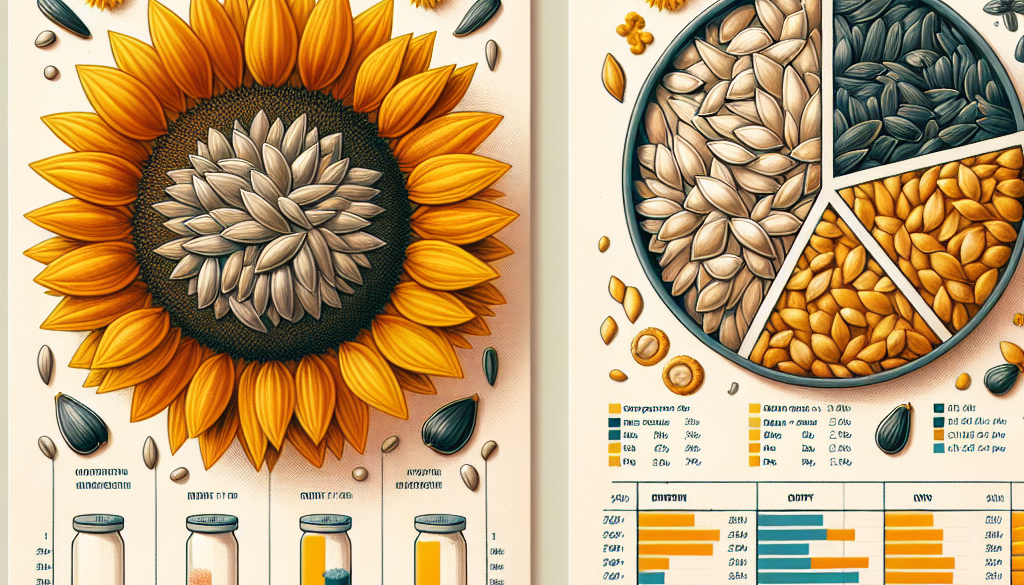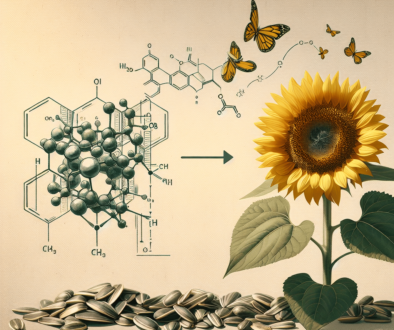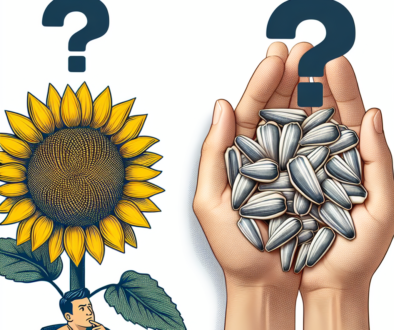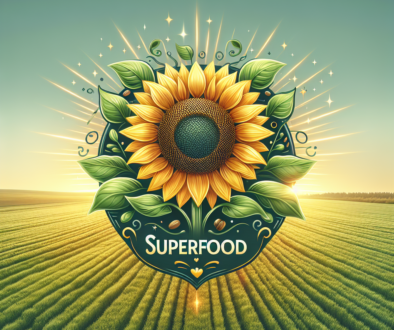Which Has More Protein Sunflower Seeds Or Pumpkin Seeds?
-
Table of Contents
- Protein Showdown: Sunflower Seeds vs. Pumpkin Seeds
- Nutritional Overview of Sunflower Seeds
- Nutritional Overview of Pumpkin Seeds
- Protein Content Comparison
- Health Benefits of Sunflower Seeds
- Health Benefits of Pumpkin Seeds
- Practical Ways to Include Seeds in Your Diet
- Conclusion: The Protein Verdict
- Discover ETprotein’s Premium Seed Proteins
Protein Showdown: Sunflower Seeds vs. Pumpkin Seeds
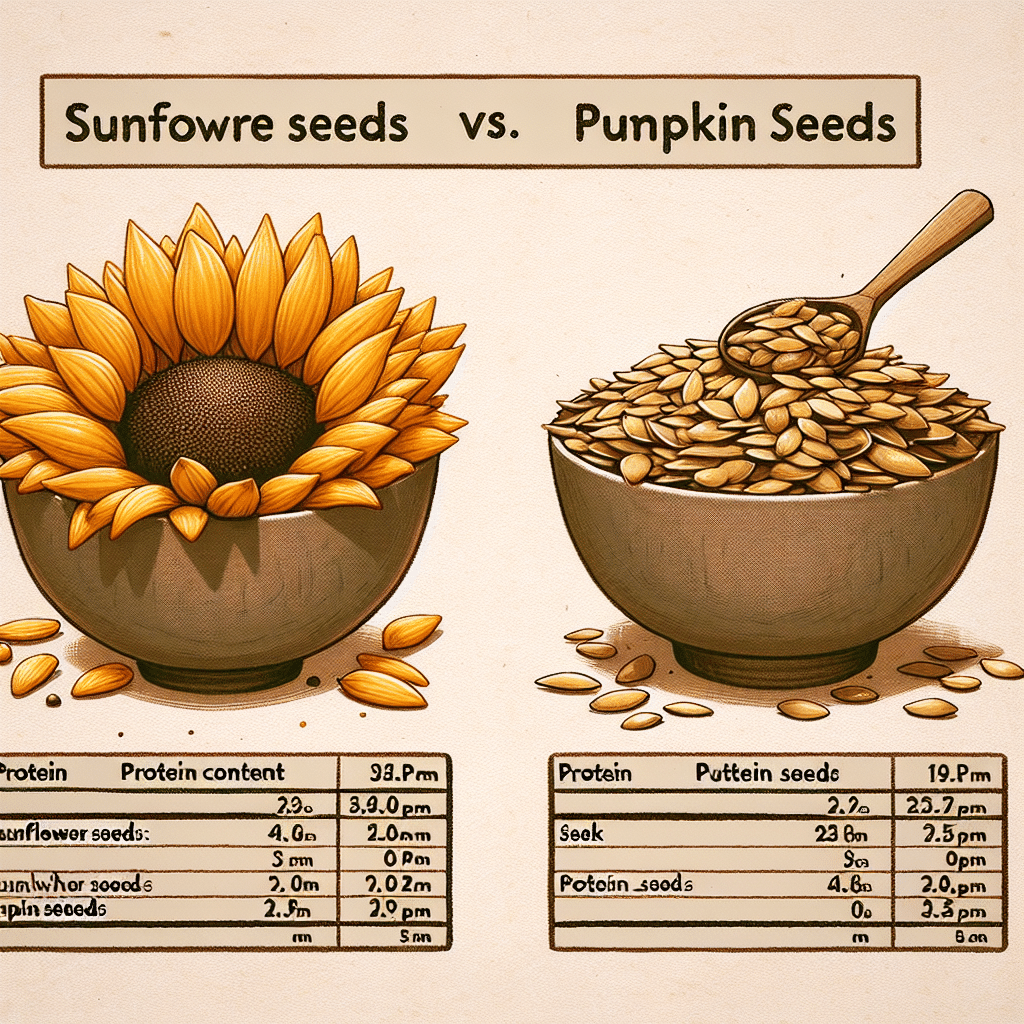
When it comes to snacking for health and nutrition, seeds are a powerhouse of energy and protein. Among the most popular are sunflower and pumpkin seeds, both of which are known for their high protein content and numerous health benefits. But which of these seeds has more protein? In this article, we’ll delve into the nutritional profiles of sunflower seeds and pumpkin seeds, compare their protein content, and explore the health benefits associated with each.
Nutritional Overview of Sunflower Seeds
Sunflower seeds come from the large flower heads of the sunflower plant. They are typically harvested and enjoyed either shelled or unshelled and are known for their rich nutty flavor. Here’s a quick look at the nutritional content of sunflower seeds:
- High in protein
- Rich in healthy fats, particularly monounsaturated and polyunsaturated fats
- Good source of fiber
- Contains vitamins and minerals such as vitamin E, B vitamins, magnesium, and selenium
- Antioxidant properties
Nutritional Overview of Pumpkin Seeds
Pumpkin seeds, also known as pepitas, are the edible seeds of a pumpkin or certain other cultivars of squash. They are usually flat and asymmetrically oval, and have a green color. Here’s what you need to know about their nutritional content:
- High in protein
- Rich in omega-6 and omega-3 fatty acids
- Good source of fiber
- Contains vitamins and minerals such as vitamin K, phosphorus, manganese, magnesium, iron, zinc, and copper
- Antimicrobial and antiviral properties
Protein Content Comparison
When it comes to protein content, both sunflower and pumpkin seeds are excellent sources. However, there are slight differences that may influence your choice depending on your dietary needs.
According to the USDA, a 100-gram serving of sunflower seeds contains approximately 21 grams of protein. On the other hand, the same serving size of pumpkin seeds offers around 19 grams of protein. While the difference is not substantial, sunflower seeds do have a slight edge in terms of protein content.
Health Benefits of Sunflower Seeds
Sunflower seeds aren’t just a tasty snack; they’re also packed with health benefits. Here are some of the advantages of incorporating sunflower seeds into your diet:
- Heart Health: The unsaturated fats in sunflower seeds can help lower cholesterol levels and reduce the risk of heart disease.
- Anti-inflammatory: Vitamin E acts as an antioxidant that helps fight inflammation in the body.
- Bone Health: Magnesium in sunflower seeds is essential for bone structure and strength.
- Stress Relief: The magnesium also helps to soothe nerves, easing stress and preventing migraine headaches.
- Immune Support: Selenium plays a role in immune function by aiding in the production of DNA and protecting against infection and damage from free radicals.
Health Benefits of Pumpkin Seeds
Pumpkin seeds are not only a rich source of protein but also offer a variety of health benefits:
- Prostate Health: Pumpkin seeds are well-known for their benefits to prostate health and are often used as a natural remedy for benign prostatic hyperplasia (BPH).
- Diabetes: The seeds can help regulate blood sugar levels, which is beneficial for people with diabetes.
- Improved Sleep: Pumpkin seeds are a natural source of tryptophan, an amino acid that can help promote sleep.
- Antioxidant Support: They contain antioxidants like carotenoids and vitamin E that help reduce inflammation and protect cells from harmful free radicals.
- Heart Health: The magnesium in pumpkin seeds is vital for maintaining a healthy heart and regulating blood pressure levels.
Practical Ways to Include Seeds in Your Diet
Incorporating sunflower and pumpkin seeds into your diet is easy and beneficial. Here are some practical ways to enjoy these seeds:
- Add them to salads for a crunchy texture and protein boost.
- Mix them into yogurt or oatmeal for added nutrients.
- Use them as a topping for smoothie bowls or soups.
- Bake them into bread, muffins, or cookies for a nutty flavor.
- Enjoy them as a standalone snack, either raw or roasted.
Conclusion: The Protein Verdict
In the battle of protein content between sunflower seeds and pumpkin seeds, sunflower seeds come out slightly ahead. However, both seeds offer a wealth of nutritional benefits that make them a valuable addition to any diet. Whether you’re looking for a protein-rich snack or a versatile ingredient to boost your meals, sunflower and pumpkin seeds are excellent choices.
Ultimately, the decision between sunflower seeds and pumpkin seeds may come down to personal preference or specific dietary needs. Regardless of which you choose, you’ll be nourishing your body with a high-quality source of protein and other essential nutrients.
Discover ETprotein’s Premium Seed Proteins
If you’re looking to incorporate high-quality protein into your diet, ETprotein offers a range of organic seed-based protein products. Their pumpkin seed protein and sunflower seed protein are perfect for those seeking plant-based, allergen-free options with a neutral taste. ETprotein’s commitment to non-GMO, high-purity ingredients ensures that you’re getting the best for your health and wellness needs.
Whether you’re involved in sports nutrition, weight management, or simply looking for a nutritious addition to your diet, ETprotein has you covered. Explore their extensive product range and experience the benefits of premium seed proteins in your daily routine.
About ETprotein:
ETprotein, a reputable protein and L-(+)-Ergothioneine (EGT) Chinese factory manufacturer and supplier, is renowned for producing, stocking, exporting, and delivering the highest quality organic bulk vegan proteins and L-(+)-Ergothioneine. They include Organic rice protein, clear rice protein, pea protein, clear pea protein, watermelon seed protein, pumpkin seed protein, sunflower seed protein, mung bean protein, peanut protein, and L-(+)-Ergothioneine EGT Pharmaceutical grade, L-(+)-Ergothioneine EGT food grade, L-(+)-Ergothioneine EGT cosmetic grade, L-(+)-Ergothioneine EGT reference grade and L-(+)-Ergothioneine EGT standard. Their offerings, characterized by a neutral taste, non-GMO, allergen-free attributes, with L-(+)-Ergothioneine purity over 98%, 99%, cater to a diverse range of industries. They serve nutraceutical, pharmaceutical, cosmeceutical, veterinary, as well as food and beverage finished product distributors, traders, and manufacturers across Europe, USA, Canada, Australia, Thailand, Japan, Korea, Brazil, and Chile, among others.
ETprotein specialization includes exporting and delivering tailor-made protein powder and finished nutritional supplements. Their extensive product range covers sectors like Food and Beverage, Sports Nutrition, Weight Management, Dietary Supplements, Health and Wellness Products, and Infant Formula, ensuring comprehensive solutions to meet all your protein needs.
As a trusted company by leading global food and beverage brands and Fortune 500 companies, ETprotein reinforces China’s reputation in the global arena. For more information or to sample their products, please contact them and email sales(at)ETprotein.com today.

